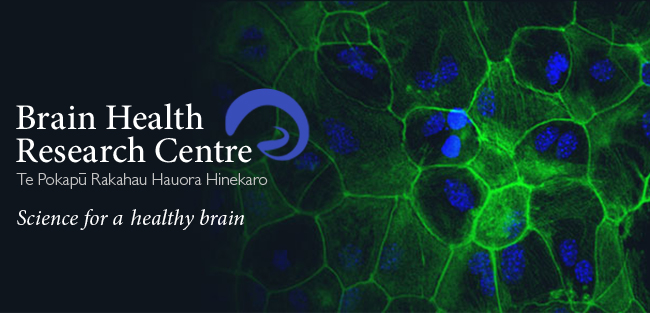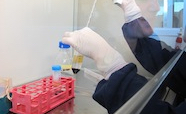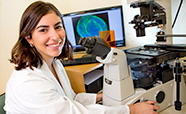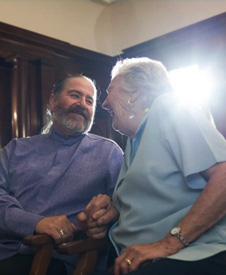Brain Health Research Centre

The mission of the Brain Health Research Centre is to undertake internationally excellent research aimed at understanding the mechanisms of brain health, disease and repair, to develop new treatments for neurological disorders, to provide international quality training for early-career neuroscientists, and to develop active educational links with the lay community.
An ageing population means more people will be affected by neurological diseases such as Alzheimer's, Parkinson's, Huntington's and stroke in the future. Fortunately, brain research offers hope to individuals, families and society. Every day brings new findings that enhance our understanding of brain health and disease.
CTCR Te Aho Matatū | Centre for Translational Cancer

Translational cancer research bridges the gap between laboratory-based science and treatment in the clinic. We now have sufficient knowledge in the fields of cancer biology, molecular biology, and immunology to make a significant impact on the treatment and management of cancer.
Our goal is improving the survival and quality of life of cancer patients by bringing new and more effective options for diagnosis and treatment. Leading cell biologists, immunologists, medicinal chemists, oncologists, and surgeons collaborate to address very specific clinical needs in cancer research.
Visit the CTCR Te Aho Matatū | Centre for Translational Cancer website
COVID-19 Research
Edgar Diabetes and Obesity Research

We aim to reduce the prevalence, and to improve the management, of diabetes and obesity by finding new ways to prevent and treat these conditions. By striving for research excellence and encouraging international collaboration we can bring the greatest benefit to New Zealanders and the wider world.
Our vision is to make significant contributions to reducing the global burden of diabetes and obesity through research and dissemination of knowledge.
Visit the Edgar Diabetes and Obesity Research website
Hereditary Diffuse Gastric Cancer (HDGC)

HDGC is an inherited cancer syndrome that was first identified in Aotearoa New Zealand, but is now known to affect hundreds of families worldwide. HDGC family members have a very high risk of developing stomach cancer and breast cancer from a young age. Otago's research into HDGC aims to improve the treatment and care of these high risk families.
HDGC Research and Endowment Fund – donations of larger amounts to build salary funding for the project in perpetuity
Visit the Hereditary Diffuse Gastric Cancer research website
Lecturer in Chaplaincy Studies

With the growing public awareness of mental health, alarming suicide rates, stress and bullying in schools and in the workplace, Chaplains play an increasingly important role in many sectors of our society (in schools, tertiary institutions, prisons, medical and caring institutions and at work) providing pastoral care and support to people of all faiths faced with such challenges.
Through its distance learning programme Otago is the only university in New Zealand offering advanced professional programmes in chaplaincy.
Our goal is to raise an endowment fund of NZ$2 million to support a unique lecturer position in Chaplaincy Studies; the first in a New Zealand university dedicated to training Chaplains and enhancing their professional practice.
Vitamin C for Cancer
Ground-breaking research at Otago University, led by Prof Margreet Vissers and Assoc Prof Gabi Dachs, has identified new functions for vitamin C that suggest the vitamin may be a useful tool in cancer treatment. The research team is seeking funding for human trials to test this possibility.

Professor Margreet Vissers (left) and Associate Professor Gabi Dachs.
Vitamin C has long been available as a cancer treatment, and there are reports of benefits in quality of life and even survival. However, without evidence for how it might work, the treatment remains controversial.
We currently don't know which types of cancer could respond to vitamin treatment, how much vitamin C is needed, nor how long it should be given for. Good information is urgently needed to help doctors give good advice to patients!
Our research team at the University of Otago, Christchurch, has identified new functions of the vitamin that could explain how it works in cancer cells. The challenge is to show that these mechanisms work in patients with cancer. The team includes scientists and clinicians, and therefore has both opportunity and expertise to design and implement appropriate clinical studies to address these important clinical questions.
We are currently working on the following projects:
- Carrying out the first human clinical studies to measure how vitamin C accumulates in human cancers following high-dose therapy.
- Measuring the effects of vitamin C on slowing cancer growth and working on understanding mechanisms of action.
- Applying these studies to projects investigating vitamin C in: Breast cancer, Bowel cancer, Brain cancer, Leukaemia, Endometrial cancer, Kidney cancer.
These studies need funding and money for Health Research is scarce. Funding applications from the team continue unabated, but the public sources of these funds are stretched, and it could take years to achieve success through this route. Now is the time for action.
"We're ready to go," Professor Vissers says. "We have all of the expertise in place, we have all of the collaborations in place. We would appreciate any support for these projects. Thank you!”
https://www.otago.ac.nz/free-radical/index.html
https://www.otago.ac.nz/mackenzie-cancer/research/index.html